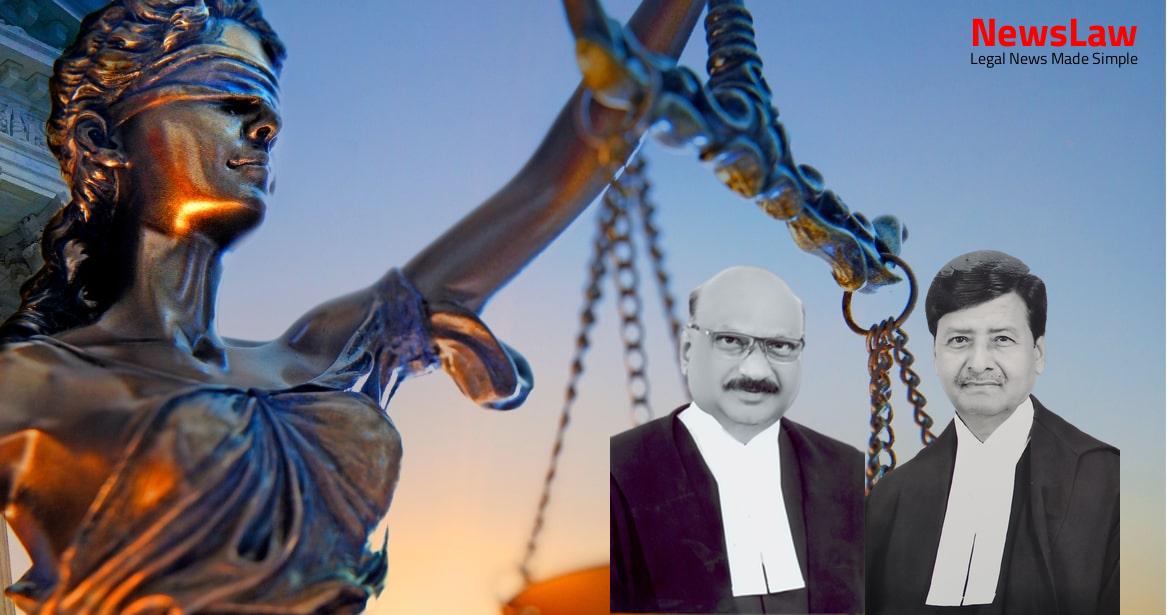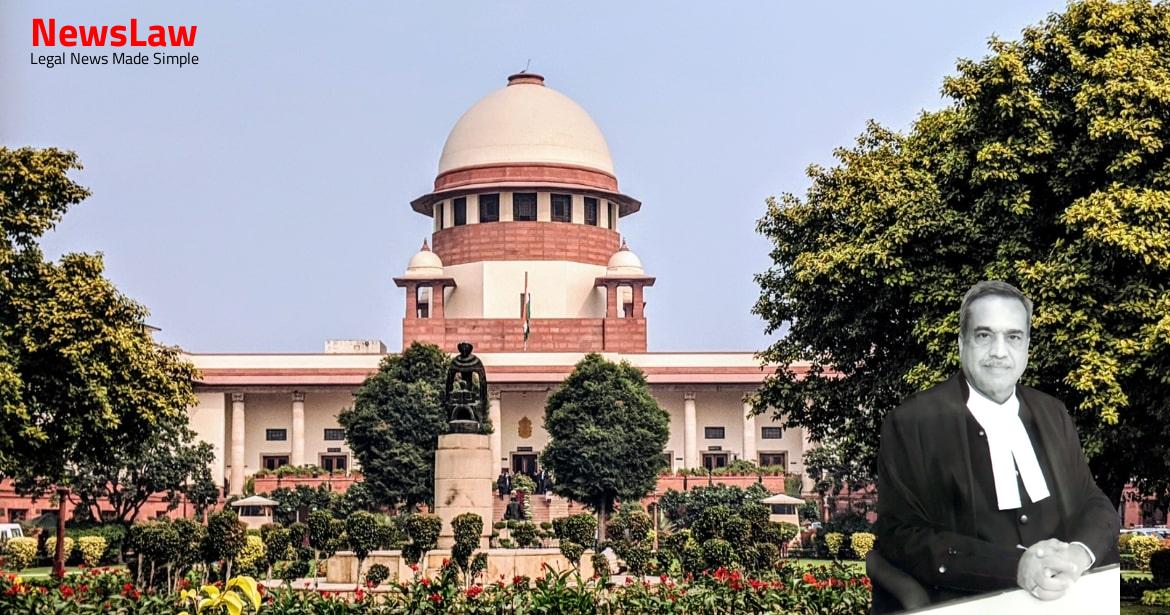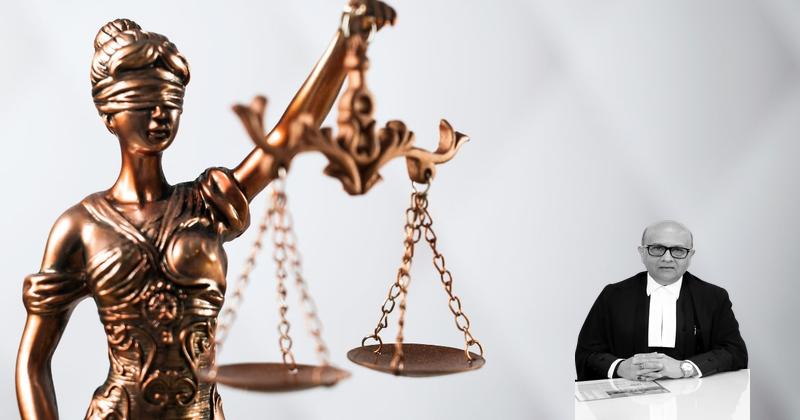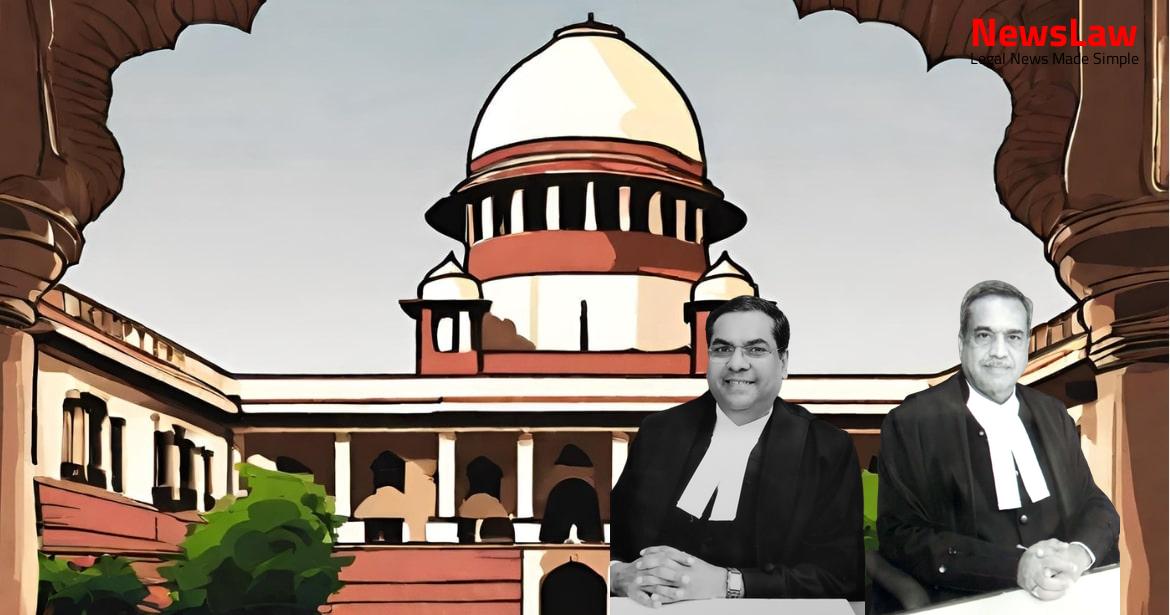In a significant ruling by the Supreme Court of India, a case involving the specific performance of the agreement for House No. 1-5-266 (new) on Kaman Road, Karimnagar has been decided. The Court carefully analyzed the expert opinion on the disputed signatures and considered the evidence of attesting witnesses. This case sheds light on the intricacies of expert handwriting analysis and its role in legal proceedings. #SupremeCourt #LegalCase #SpecificPerformance #ExpertOpinion
Facts
- The plaintiff filed a suit for specific performance claiming that the first defendant agreed to sell the house to him but did not execute the sale deed.
- First defendant and his brother sold the house to the second defendant after the agreement of sale with the plaintiff.
- The Trial Court decreed the suit in favor of the plaintiff.
- High Court dismissed the suit and cross-objections arising from the Trial Court’s judgment.
- Plaintiff purchased half of the property from the second defendant after the High Court’s decision.
- The defendants denied the case of the plaintiff, alleging forgery of the agreement of sale.
- During the trial, the agreement of sale was sent for expert opinion on the genuineness of signatures.
- Expert report on the agreement of sale’s signature authenticity was part of the trial records.
- The suit pertained to House No. 1-5-266 (new) on Kaman Road, Karimnagar.
- The High Court reversed the Trial Court’s judgment which decreed the suit.
- High Court relied solely on the expert opinion and dismissed the suit by concluding that the first defendant’s signature on the agreement of sale was forged.
- The Trial Court considered the expert opinion but did not rely on it as it was not corroborated by reliable evidence.
- The Trial Court found the evidence of attesting witnesses (PWs 2 and 3) to be cogent and reliable, concluding that their evidence should not be disbelieved in favor of the expert opinion.
- The Trial Court compared the admitted signatures of the first defendant with the disputed signature and found them to not tally, indicating forgery.
Also Read: Tower Infotech Ltd. Bail Order Appeal
Analysis
- The Court must be cautious in evaluating expert evidence, which is weak and not substantive.
- Weight of opinion depends on witness familiarity with disputed handwriting.
- Opinion of a person acquainted with handwriting is relevant under Section 47 of Evidence Act.
- Comparison of signatures revealed similarity in admitted and disputed signatures.
- High Court’s reliance on expert witness over substantive evidence is questionable.
- Plaintiff’s compliance with specific performance suit requirements was discussed.
- Expert evidence should not be conclusive proof.
- Alleged lack of evidence for demand of performance after agreement execution was contested.
- Importance of court seeking corroborative evidence in a case.
- Relevance of handwriting expert opinion under Section 45 of Evidence Act.
- Inconsistencies in High Court’s reasoning for disbelieving attesting witnesses were pointed out.
- Admissions by witness DW-3 and consistent testimonies support plaintiff’s case.
- High Court’s oversight of receipt of earnest money in Ext. A-2 was noted.
- Admitted signature identification by DW-3 was emphasized for authenticity of disputed signature.
- Ext. A-2 should have been considered by High Court as part of the transaction.
- Evidence of PWs supported plaintiff’s case and should not have been rejected by High Court.
- Expert opinion evidence should be approached cautiously and its reliability should be determined with care.
- Independent corroboration of opinion evidence is generally advisable as a rule of prudence.
- The Court must exercise due care and caution while determining the creditworthiness of expert evidence.
- Section 46 of the Indian Evidence Act makes opinion evidence of an expert admissible and relevant.
- The testimony of attesting witnesses and the circumstances of the case can be crucial in determining the validity of a document like a Will.
- Past precedents emphasize that the evidence of a handwriting expert should be considered in light of other substantive evidence.
- The reliance on expert testimony should not be dismissed solely due to lack of independent corroboration.
- The Court must assess the creditworthiness of expert evidence considering all relevant factors.
- Opinion evidence, including that of a handwriting expert, is open to challenge based on facts.
- In specific cases like the one mentioned, the Court chose to disregard the expert opinion on a disputed signature after finding it inconclusive.
- Plaintiff had sufficient money to pay the balance consideration to the first defendant and was ready and willing to perform his part of the contract.
- All formalities required for specific performance have been fulfilled by the plaintiff.
- Plaintiff had been demanding that the first defendant receive the balance consideration of Rs. 58,800/- and execute a regular registered sale deed at his cost.
- First defendant had been avoiding specific performance of the agreement of sale.
- Proof of oral demand is not acceptable.
Also Read: Priority of Employees’ Dues in Asset Sale: SARFAESI Act vs. Land Revenue Code
Decision
- The appeals have been allowed.
- The judgment and decree passed by the Trial Court stands restored.
- The impugned judgment of the High Court is liable to be set aside.
Also Read: Landmark Judgement on Consumer Rights in Healthcare Sector
Case Title: CHENNADI JALAPATHI REDDY Vs. BADDAM PRATAPA REDDY (DEAD) THROUGH LRS. AND ANR.
Case Number: C.A. No.-007818-007819 / 2009



